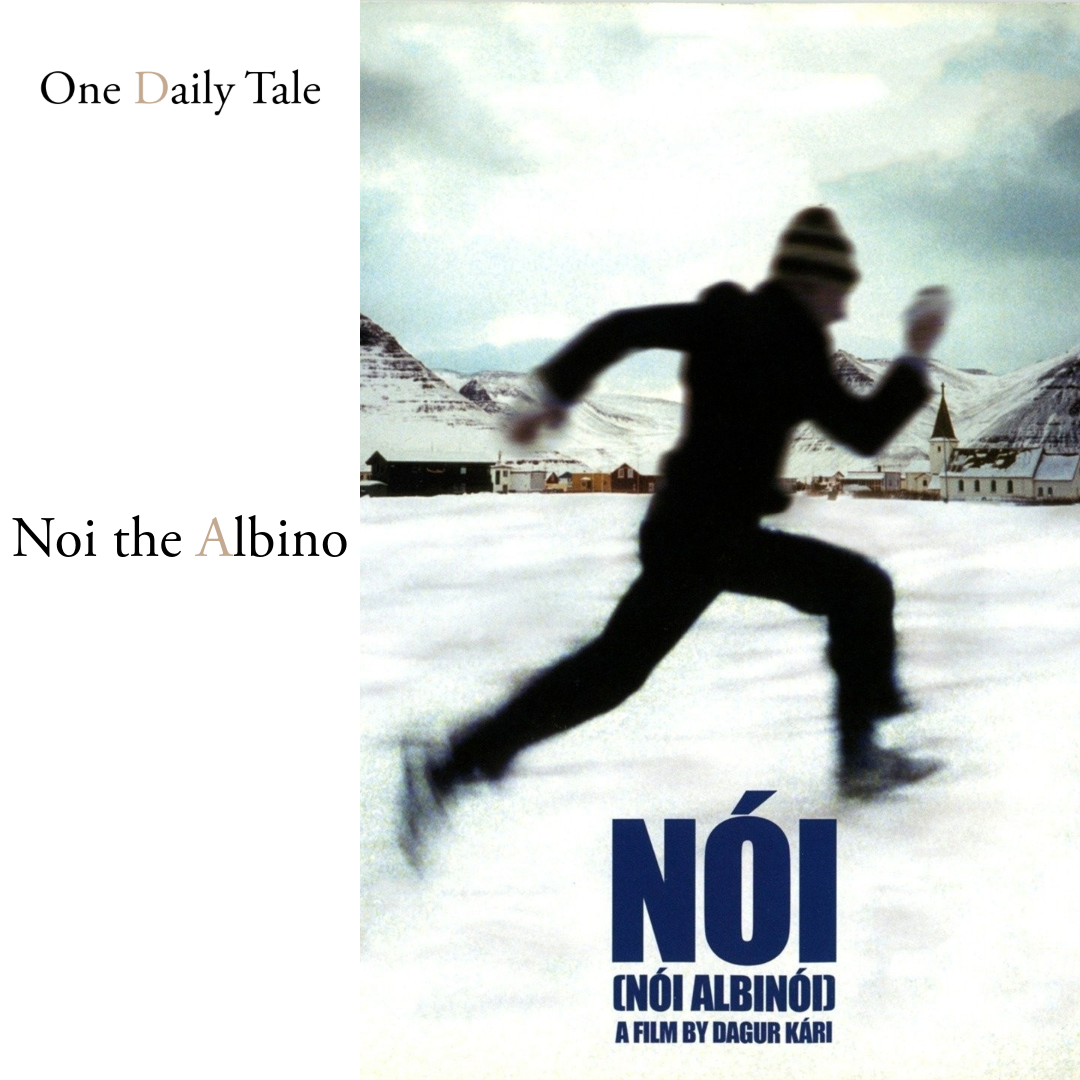I watched Noi the Albino on ARTE, a unique French-German channel known for broadcasting lesser-known films and documentaries. This film, set in Iceland, tells the story of Noi, a 17-year-old teenager living in a small, remote fishing village. Noi’s appearance, marked by alopecia totalis (a complete absence of hair), sets him apart visually, but it’s the stark Icelandic landscape, combined with the hauntingly beautiful soundtrack, that creates the film’s distinct and powerful atmosphere. Noi’s isolation seems inseparable from the frozen, snow-covered world around him, as he struggles to find a way out of his confined existence.
A World of Isolation: The Setting and Its Symbolism
The film’s setting emphasizes the cold solitude that permeates Noi’s life. The remote, snow-covered village mirrors his loneliness, while the calm, melancholic music heightens this sense of entrapment. Despite Noi’s high intelligence, he struggles to fit into his community, grappling with a challenging relationship with his alcoholic father. His sense of longing intensifies when he meets Iris, a girl who, like him, dreams of something beyond the limits of their village. Yet, as they begin to envision an escape, they realize the weight of societal and personal constraints pulling their dreams back down to reality.
Noi’s Struggles and Dreams
The film often slows down, inviting viewers into moments of deep contemplation. The beauty of the snowy landscape contrasts with its chilling emptiness, echoing the quiet resilience Noi musters as he faces his circumstances. Noi isn’t a typical hero—he bears the scars of his struggles and yet clings to hope. The symbolic “glasses toy” that allows him to see other horizons and imagine a different life hints at his yearning for freedom. Together with Iris, they dream of Hawaii, a place they envision as an ideal escape from their restrictive lives.
The Power of Hope and Escapism
Noi the Albino beautifully blends sadness, bitterness, and hope. The sadness of a life that doesn’t align with one’s dreams, the bitterness rooted in circumstances beyond one’s control, and finally, the hope of transforming one’s life through resilience. While the ending is neither conventionally happy nor sad, it suggests that stories, like life, continue in cycles. We may face setbacks, but our reactions define us. With determination, we can pursue new challenges and reach for our dreams, even if the path forward isn’t always clear.
Our time is short; if we don’t let our lives shine now, then when? Noi the Albino serves as a reminder that while we may feel trapped by our origins, family, or environment, the power to shape our lives remains within us. Embracing our dreams, even if only as a guiding light in the snow, can give us the strength to push forward, reminding us that our stories are always evolving.










Leave a Reply